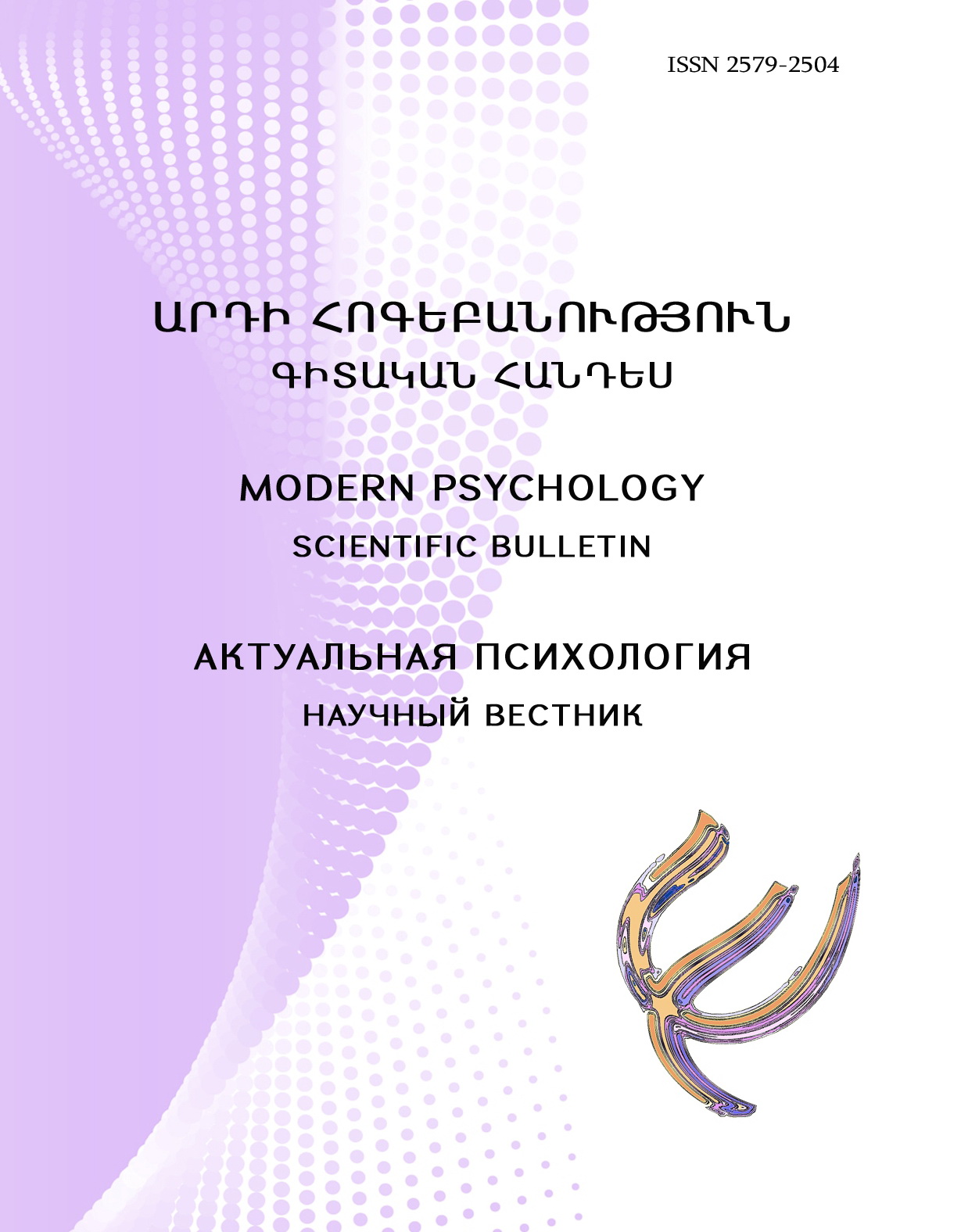STUDY OF THE INTERRELATON BETWEEN KNOWLEDGE OF PSYCHOLOGICAL SELF-REGULATION METHODS OF THE PERSON AND MINDFULNESS (EXAMPLE OF TEACHERS)
DOI:
https://doi.org/10.46991/SBMP/2024.7.1.073Keywords:
self-regulations, stress, mindfulness, coping mechanisms, adaptive, maladaptive, teacher, educationAbstract
The purpose of this article is to study the importance of psychological self-regulation among teachers, as well as their level of mindfulness. Survey, testing and content analysis methods were applied. We applied localized version of Five Facet Mindfulness Questionnaire and Mindfulness experience questionnaire. In the article, we present the responses or coping mechanisms to stressful situations given by the teachers. Based on the teachers' answers, we have distinguished adaptive and non-adaptive coping mechanisms. Referring to the methods of psychological self-regulation, we presented the role of psychological self-regulation and particularly mindfulness meditation in the process of overcoming stress. During the experimental research, we tried to find out how teachers' knowledge and application of psychological self-regulation methods interrelates with mindfulness.
As a result of the research we conclude that psychological self-regulation, especially mindfulness meditation, is not widespread among teachers, moreover, there is no clear understanding of self-regulation methods, their use and importance. The level of mindfulness among teachers is average.
References
1. Brantley J., Calming Your Anxious Mind: How Mindfulness and Compassion Can Free You from Anxiety, Fear, and Panic, New Harbinger publication, USA, 2003, 195 p․
2. Germer Ch. K., Siegel R.D., Fulton P. R., Mindfulness and Psychotherapy, The Guilford Press, 2005, p. 333 p.
3. McCown D., Reibel D., Micozzi M.S., Teaching Mindfulness: A Practical Guide for Clinicians and Educators, Springer-Verlag, N. Y., 2010, 250p․
4. Shapiro Sh. L., The Integration of Mindfulness and Psychology, Journal of Clinical Psychology, June 2009, Vol. 65(6), 2009, pp. 555-560, https://upaya.org/uploads/pdfs/Shapiro2009.pdf, 14.03.2021.
5. Werner, K. M., Milyavskaya, Motivation and self-regulation: The role of want-to motivation in the processes underlying self-regulation and self-control, Social and Personality Psychology Compass.
6. Williams M., Penman D., Mindfulness։ An Eight Week Plan for Finding Peace in a Frantic World, Rodale, 2011, 288p.
7. Young Sh., Five Ways to Know Yourself: An Introduction to Basic Mindfulness, 2011, 183 p․
8. Zeidner M., Endler N. S., Handbook of Coping Theory, Research, Applications, New York, John Wiley & Sons, Inc., 1996, 798 p.
9. Lindeman Kh., Autogenic training (Аутогенная тренировка), Poppuri, M., 2000, 192 p.
10. Morosanova V., I., Self-regulation and individuality of a person, (Саморегуляция и индивидуальность человека), Ed. 2, M., Nauka, 2012, 519p.
11. Prokhorov A. O. Psychology of states (Психология состояний), Kogito-Centre, M., 2011, 624 p.
12. Poghosyan S., Gevorgyan A., Development of self-regulation skills and application of diagnostic methods in work activities, (Աշխատանքային գործունեության մեջ անձի ինքնակարգավորման հմտությունների զարգացումը և ախտորոշման մեթոդների կիրառումը), Public Administration Journal, N1, 2023, pp. 288-300.
Downloads
Published
Issue
Section
License
Copyright (c) 2024 Astghik Gevorgyan, Poghosyan S.H.

This work is licensed under a Creative Commons Attribution-NonCommercial 4.0 International License.



